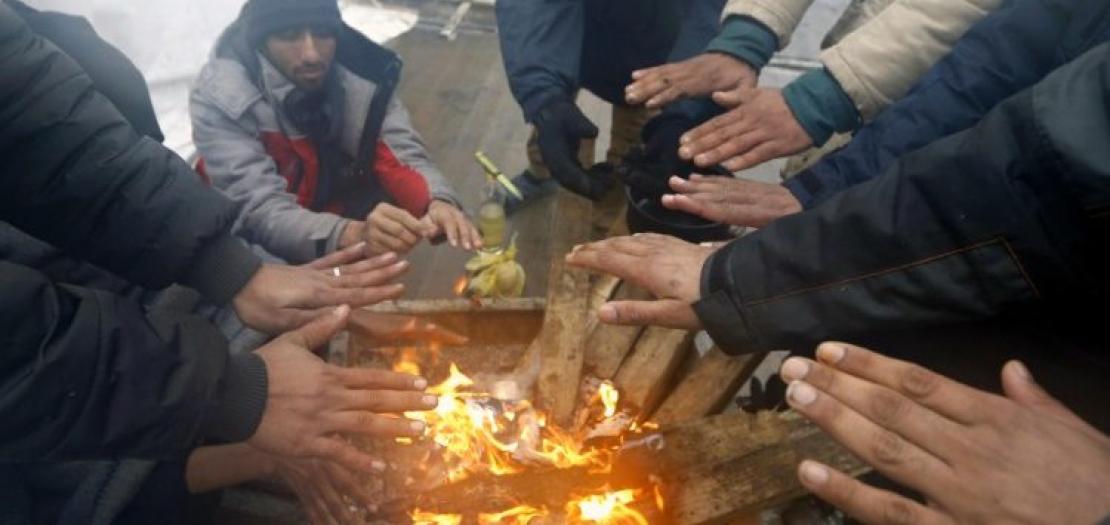Issued by the Catholic Center for Studies and Media - Jordan. Editor-in-chief Fr. Rif'at Bader - موقع أبونا abouna.org

Hundreds of migrants and refugees are at serious risk and the mercy of worsening weather conditions in inadequate shelters, amid the lack of political consensus in Bosnia-Herzegovina.
The Italian branch of Caritas is warning of a looming humanitarian catastrophe for migrants and refugees stranded without worthy housing conditions in freezing weather in Bosnia-Herzegovina.
Caritas Italiana says the already precarious situation of the migrants and refugees, whose camp burnt down on 23 December, could further worsen due to frigid winter weather conditions and continuous transfers from one camp to another.
The burnt facility, Lipa camp, on the border with Croatia, was home to almost 1,000 migrants, many of them fleeing violence in Syria and Afghanistan, and seeking to enter Europe. But with no running water, electricity or heating in sub-zero temperatures, it lacked the minimum conditions for dignified survival.
Political pawns
A lack of consensus within the divided government of Bosnia-Herzegovina, with its decentralized state governance structures, coupled with protests by residents, has resulted in the migrants being shifted to and fro on buses and ultimately taken back to Lipa camp where the army has put up new tents, but these are placed directly on the icy ground without flooring or bedding.
Fears that the tense and inhumane situation could lead to violence have already proved founded with incidents of fighting and one person stabbed. The European Commission and humanitarian agencies are calling on authorities to urgently take an institutional initiative and provide adequate reception facilities to those who are risking their health and their lives.
The EU Commission denounced the situation saying the migrants "are being used as internal political pawns."
Rough estimates suggest some 70,000 people have arrived in Bosnia and Herzegovina since early 2018. The vast majority have since entered the European Union, leaving behind up to 8,500 people.
The Balkan Route
For Caritas Italiana attention must be directed to those on the move on the Balkan Route that starts in Greece and ends in Italy or Austria. It is a route that sees thousands of people stranded in various refugee camps and other inadequate structures, especially since the covid-19 health emergency that has resulted in many migrants housed in unsuitable facilities and quarantined in prohibitive conditions.
Since 2015, Caritas Italiana has been present along the entire Balkan Route supporting migrants and refugees in partnership with the local Caritas offices in Greece, Albania, Macedonia, Bosnia-Herzegovina and Serbia.
They are striving to offer reception services, psycho-social support, child protection, hygiene protection, distribution of food and necessary goods for tens of thousands of people.
Donation by Pope Francis
In recent weeks, thanks to a contribution of the Italian Bishops’ Conference and a donation by Pope Francis, Caritas Italiana and Caritas Bosnia-Herzegovina have been able to offer new services in the transit camps in the area of Bihac and Sarajevo, as well as distribute winter clothes to more than 1,500 migrants.
But, it stresses, there is an urgent need for broader initiatives that involve the national institutions.







